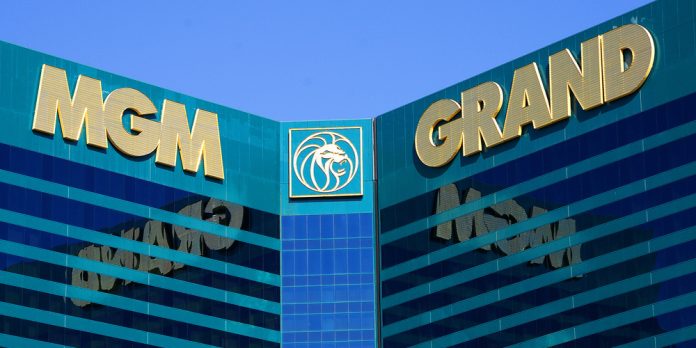MGM Resorts International has reported a record fourth quarter in its financial results for the quarter and the full-year, noting it has achieved several “strategic milestones” during 2021 and that it eyes future sports betting and igaming growth, as well as geographical expansion.
The group is expecting key land-based expansion to occur within New York and Japan in 2022, alongside the closing of its $1.075bn divestment of Las Vegas’ Mirage to Hard Rock during the second half of the year.
Stateside, MGM is encouraged by the continued progress being made in the commercial gaming license opportunity in New York, as it believes it is extremely well-positioned thanks to existing Empire City operations.
CEO and President Bill Hornbuckle stated: “I’d like to spend some time highlighting the significant milestones we achieved in ’21 to transform our company. First, we took steps to complete our goal of monetizing our real estate assets meaningfully bolstering our domestic cash position.
“We have simplified our structure, bringing the operations of City Center fully under our control, selling MGP to Vici, a transaction that is expected to close in the coming months.
“We are also making strategic changes in our Las Vegas portfolio with the announced acquisition of the operations of the Cosmopolitan of Las Vegas and the sale of the operations of the Mirage.
“We believe these transactions will enhance and diversify our offerings in one of the most desirable and competitive destinations in the world.”
Speaking on Japan, Hornbuckle noted that MGM is looking to “diversify geographically into what we believe will be one of the world’s largest gaming markets in the world”.
Alongside its Orix partner within the city of Osaka, MGM intends to submit an area development plan to the central government by April as it remains “hopeful and confident in being awarded a license later this year to build an integrated resort in Japan”.
These comments come as the group reports a revenue of $3.1bn in Q4 2021, up 105% year-over-year (Q4 2020: $1.49bn) due to the removal of mandated operational and capacity restrictions put in place due to the pandemic as well as an increase in travel.
MGM’s Las Vegas resorts saw revenue improve by 277% to $1.8bn YoY (Q4 2020: $479.7bn), regional operations increase by 51% to $899.6m YoY (Q4 2020: $595.4m), and MGM China grew by 3% to close at $314.7m YoY (Q4 2020: $304.7m) to reach a record 14% in market share.
Group-wide net income attributable to MGM Resorts of $131m compared to a loss of $448m in the prior year quarter, with adjusted EBITDA closing at $821m.
CFO and Treasurer Jonathan Halkyard stated: “In 2021, we further bolstered our liquidity position while returning $1.75bn to shareholders via share repurchases and making strategic investments that align with our vision to be the world’s premiere gaming entertainment company.
“We remain committed to maximizing long-term shareholder value and our capital allocation strategy continues to be anchored in three key priorities: maintaining a strong balance sheet, programmatically returning cash to shareholders, and investing in targeted growth opportunities.”
Looking at the full-year, MGM’s revenue grew by 88% to $9.68m YoY (2020: $5.16m); with net income closing at $1.3bn (2020: net loss of $1bn), including a $1.6bn net gain related to the consolidation of CityCenter, and adjusted EBITDAR of $2.4bn.
The group’s Las Vegas venue net revenues improved by 111% to $4.73bn YoY (2020: $2.24bn), but a 19% decrease on 2019 results. This grows to 22% when excluding Aria in 2021 and Circus Circus Las Vegas in 2019.
Regional operations saw revenue increase 72% year-on-year from $1.96bn to $3.39bn but drop 4% when compared to 2019, with MGM China reaching $1.2bn, an increase of 84% compared to the prior year’s $656.7m and a decrease of 58% from 2019.














